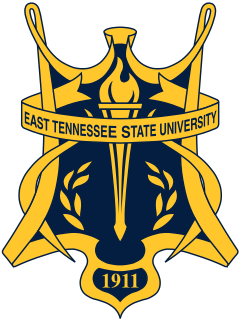
Education in Canada is for the most part provided publicly, and is funded and overseen by provincial, territorial and local governments. Education is within provincial jurisdiction and the curriculum is overseen by the province. Education in Canada is generally divided into primary education, followed by secondary education and post-secondary. Within the provinces under the ministry of education, there are district school boards administering the educational programs.
The Highlander Research and Education Center, formerly known as the Highlander Folk School, is a social justice leadership training school and cultural center in New Market, Tennessee. Founded in 1932 by activist Myles Horton, educator Don West, and Methodist minister James A. Dombrowski, it was originally located in the community of Summerfield in Grundy County, Tennessee, between Monteagle and Tracy City. It was featured in the 1985 documentary film, You Got to Move. Much of the history was documented in the book Or We'll All Hang Separately: The Highlander Idea by Thomas Bledsoe.

The Texas A&M University System is a state university system in Texas and is one of the state's six independent university systems.
A students' union, also known by many other names, is a student organization present in many colleges, universities, and high schools. In higher education, the students' union is often accorded its own building on the campus, dedicated to social, organizational activities, representation, and academic support of the membership.

The University of Memphis (UofM) is a public research university in Memphis, Tennessee. Founded in 1912, the university has an enrollment of more than 22,000 students.

East Tennessee State University (ETSU) is a public research university in Johnson City, Tennessee. Although it is part of the State University and Community College System of Tennessee, the university is governed by an institutional Board of Trustees. As of May 2017, it is the fourth largest university in the state and has off-campus centers in nearby Kingsport, Elizabethton, and Sevierville.

James Henry Quillen, usually known as Jimmy Quillen, was a Republican member of the United States House of Representatives from Tennessee from 1963 to 1997.

The Florida Board of Governors is a 17-member governing board that serves as the governing body for the State University System of Florida, which includes all public universities in the state of Florida.
The Illinois Community College System consists of 39 public community college districts, composed of 48 community colleges and one multi-college center where 3 of the community colleges offer additional classes. Thirty-seven of the districts have a single college; two districts are multicollege. Since July 1990, the entire state has been included within community college district boundaries.

The Texas Higher Education Coordinating Board (THECB) is an agency of the U.S. state of Texas's government that oversees all public post-secondary education in the state. It is headquartered at 1200 East Anderson Lane in Austin.
The Tennessee Board of Regents is a system of public universities in the U.S. state of Tennessee. It is one of two public university systems, the other being the University of Tennessee system. It was authorized by an act of the Tennessee General Assembly passed in 1972. The TBR supervises all public community colleges and technical colleges in the state, dealing with over 140,000 students annually.
Washington State University Spokane, branded as WSU Health Sciences Spokane, is a campus of Washington State University located in Spokane, Washington. It was established in 1989 and, as of 2010, is designated as the university's health science campus. The urban campus is housed on the 48-acre (19 ha) multi-institutional WSU Health Sciences Spokane campus, formerly known as the Riverpoint Campus, in Spokane's University District just east of Downtown Spokane.

The Oklahoma State Regents for Higher Education is the agency of the government of Oklahoma that serves as the governing body of the Oklahoma State System of Higher Education, which is the largest provider of higher education in the state of Oklahoma. The State System consists of all institutions of higher education in Oklahoma that are supported by direct legislative appropriations from the Oklahoma Legislature.
The Oklahoma State System of Higher Education is the state's legal structure for providing public education at the collegiate level. It is a coordinated system of colleges and universities located throughout the state.

Frederick Stephen Humphries was an American academic administrator and chemistry professor. He served as President of Tennessee State University, and President of Florida A&M University. He was also President and CEO of the National Association for Equal Opportunity in Higher Education from 2001 to 2003. Florida A&M University conferred the President Emeritus title upon him on December 11, 2009. He was Regent Professor at the Florida A&M University College of Law from 2003 until his retirement in 2014.

In the United States, community colleges, are primarily two-year public institutions of tertiary education. Many community colleges also offer remedial education, GEDs, high school diplomas, technical degrees and certificates, and a limited number of 4-year degrees. After graduating from a community college, many students transfer to a university or liberal arts college to complete a bachelor's degree, while others enter the workforce.
Educational accreditation is a quality assurance process under which services and operations of educational institutions or programs are evaluated and verified by an external body to determine whether applicable and recognized standards are met. If standards are met, accredited status is granted by the appropriate agency.

The Oregon Higher Education Coordinating Commission is a volunteer state board established in 2011 in the U.S. state of Oregon, with responsibilities for advising the governor, the legislature and the Chief Education Office on statewide postsecondary education policies and funding. The fourteen-member commission has authorities for "development of biennial budget recommendations for public postsecondary education in Oregon, making funding allocations to Oregon's public community colleges and public universities, approving new academic programs for the public institutions, allocating Oregon Opportunity Grants, authorizing degrees that are proposed by private and out-of-state (distance) providers, licensing private career and trade schools, overseeing programs for veterans, and additional legislative directives".

The Archives of Appalachia are located on the campus of East Tennessee State University (ETSU) in Johnson City, Tennessee. Containing books, rare manuscripts, photographs, and audio and moving-image recordings, the archives serve as a resource for scholarly and creative projects dealing with life in southern Appalachia.











